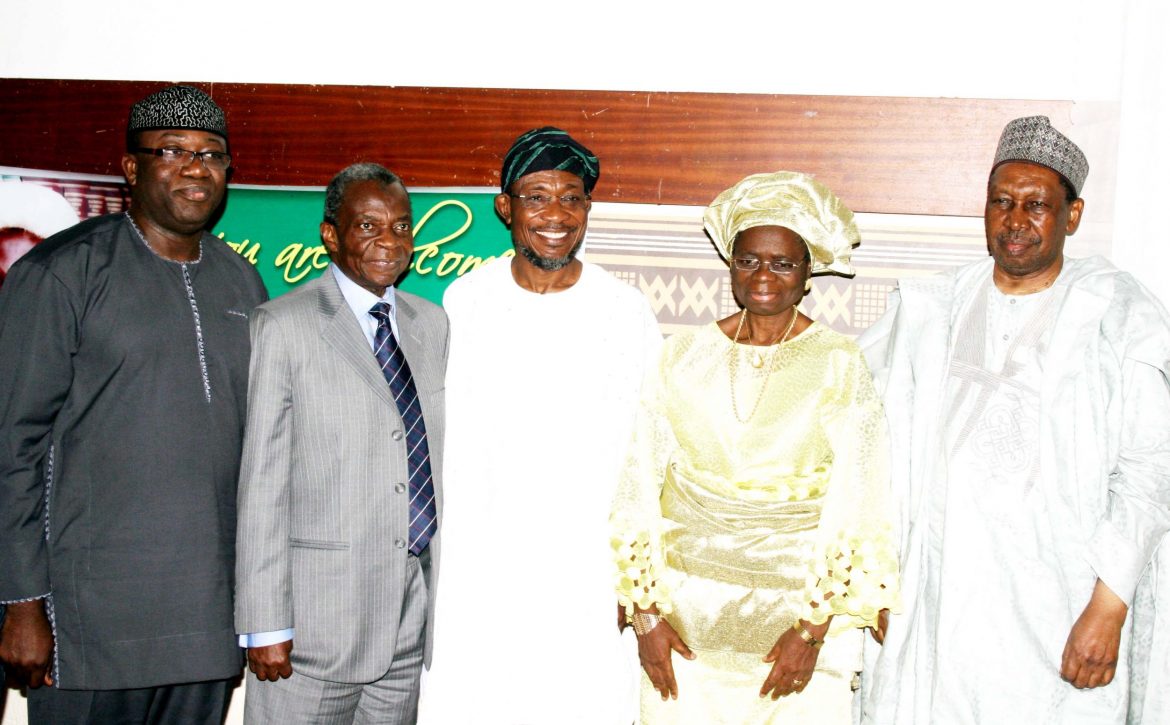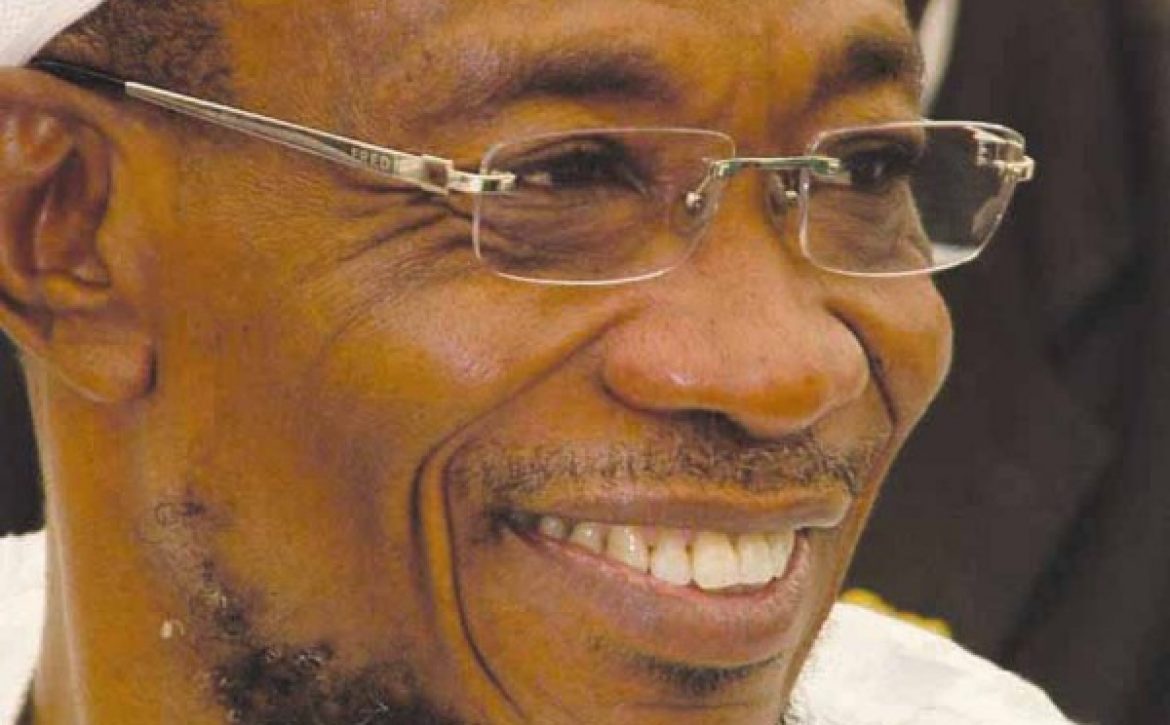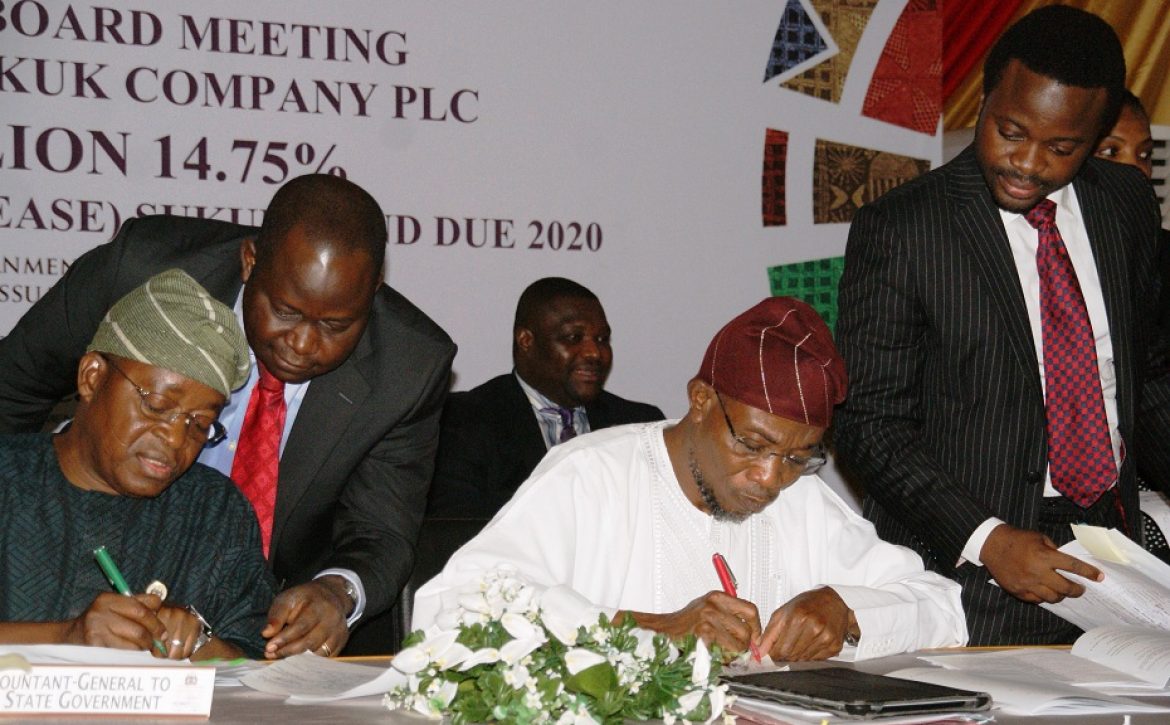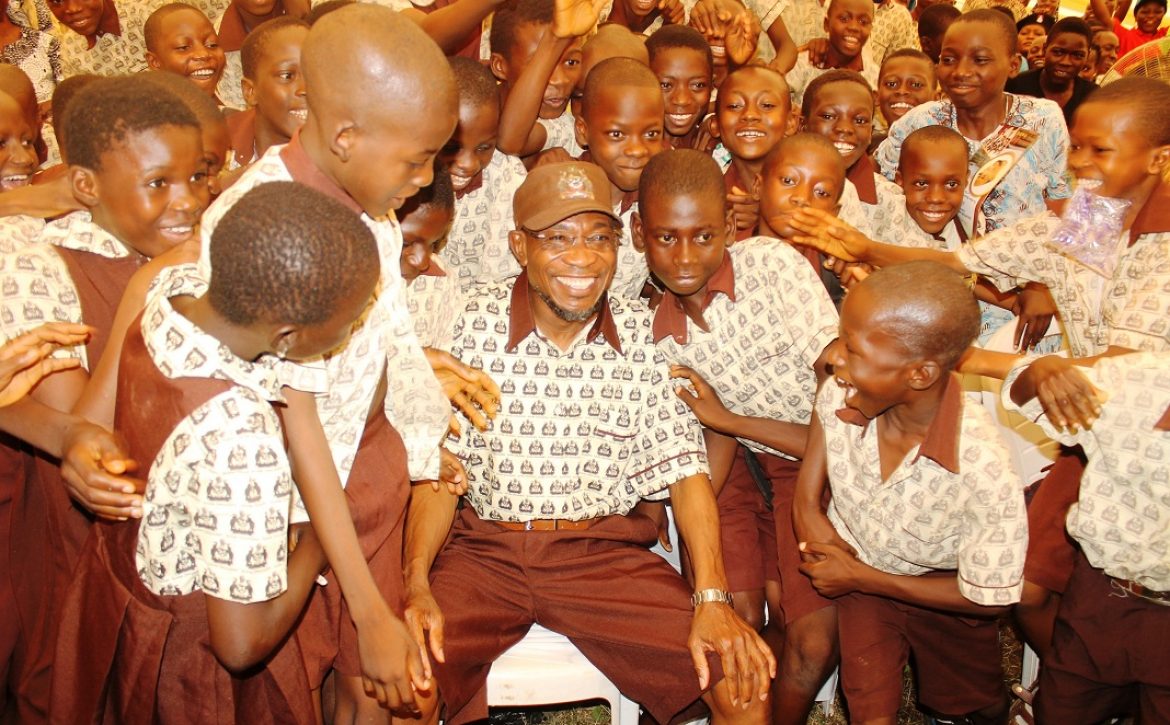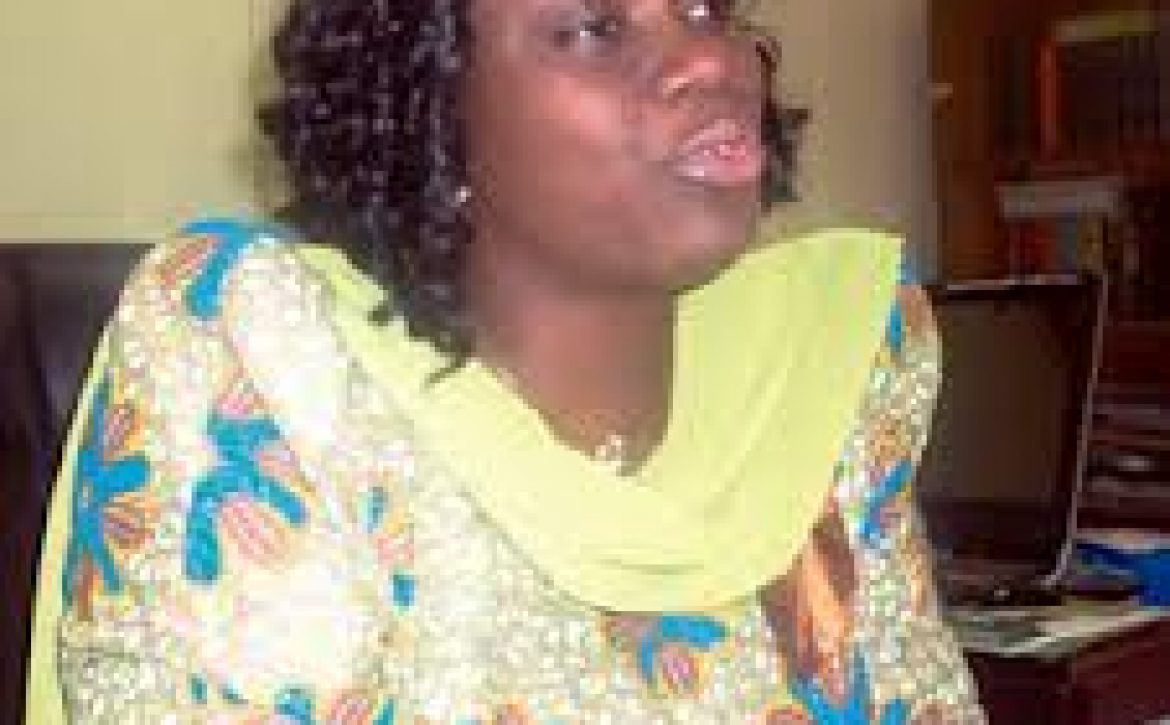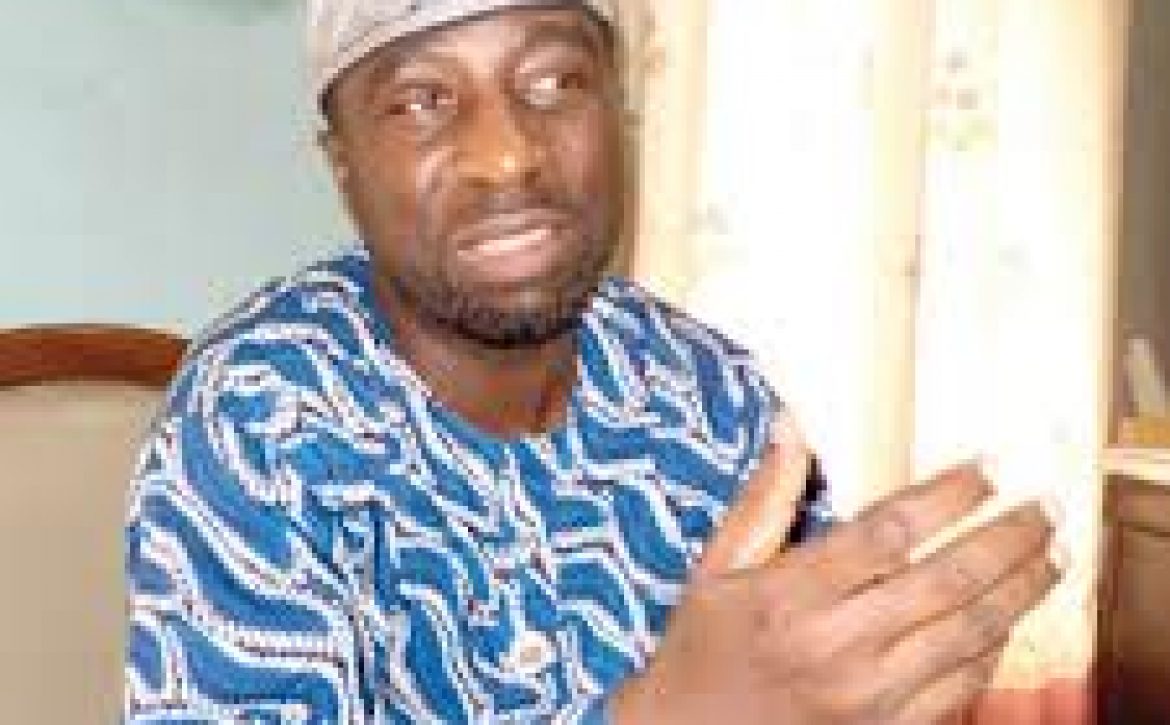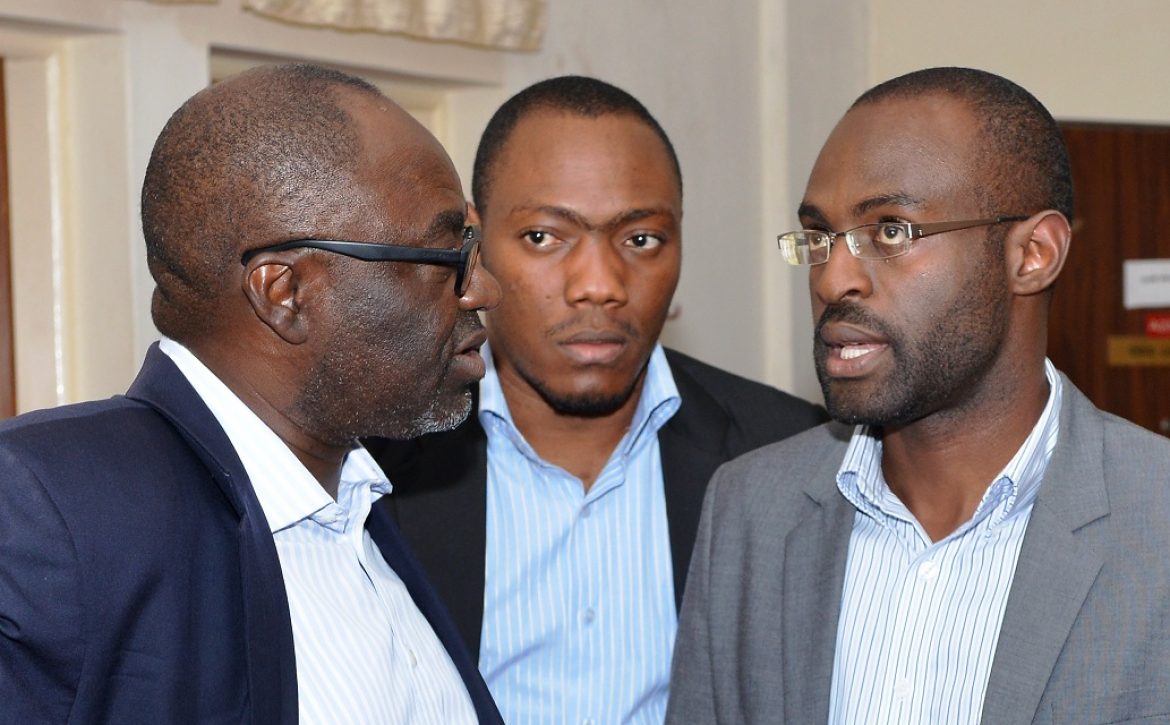
My first name is Aseez. You are likely to encounter the name in its many mangled variations to suit local accent. I can understand the twisted distortions. We are not Arab. I attended a Catholic primary school, then a Methodist High School. I accomplished this while rote learning the Koran in Ile Kewu (informal Koranic school). Meanwhile, I earned my first degree (no honorary causa at this level in my days and still hope that the tradition has not changed) at the University of Lagos.
I studied in Germany and finally acquired higher degrees in the United States of America. Today, having lived in over ten countries in Africa, Europe and America, speak English, French and German as well as two African languages, and gone on pilgrimage to Mecca and visited the Dead Sea in Jordan, I am unapologetically and proudly a Sango devotee. I am literally wedded to the chants and sacred recitals of the inspiring Trinidadian Orisa priestess, Ella Randall. I listen to her with an exhilarating fervor as I step into the wetness of every morning. Her diction is so clear you would never imagine that she did not grow up in the groves and shrines of revered Orisa in the heart of Yorubaland.
I was born after my sister Felicia, who is a devout Catholic. We spar a lot these days after I have given her the Western Union Control Number. I remind her the umpteenth time that the money is for her upkeep as the Catholic parish she worships in fleeces her of the little that I am able to remit to her to keep body and soul together. She is a retired school teacher and if you are not in a ministerial position to charm your directors into buying you a two bullet proof limousines for a paltry U$1.6 million, you appreciate what it means in Nigeria to be a retiree. My other sister, Jumoke, is a home maker to a decent husband whose only distraction from her devotion to his wife is the love of Jesus. Somebody say Amen!!! When last I was home, they had packed the family van with my nieces and nephews and spent a whopping four days sleeping in the open attending the last convention of one of those mammoth prayers camps of those quasi Pentecostals prosperity campaigners along the Lagos-Ibadan expressway.
Their Church has a university and the founding pastor rides in an executive jet. One of my nephews is in college in Cotonou in Benin Republic. I have asked no questions out of respect for the sovereignty of their home. My youngest sister, Tinuke, is a devout Muslim who becomes edgy at the prospect of missing any of her quotidian five prayers. She is actually named Muibat. She is a teacher too. We are all the children of Salami Oyeladun and Rabiatu Amope. My father has a black moon imprinted on his forehead from his unflinching devotion to Allah. In the family hierarchy, he comes next to his senior brother, our Baba Gebu-shortened form of Gabriel, a fanatical local leader of the Assembly of God’s Church-Jehovah Witness. Baba Gebu was the patriarch of our compound -Ile Gbelekale in Oyan, Odo-Otin Local Government area of Osun. My sister, his daughter- not cousin, please- Anti Rebecca, is easily my favorite in the family. We are a seamless family even now.
Last year, I shed tears as I visited Oyan. It was not because I was home to bury my father who was never tired of reminding me he was unenthusiastic about his long overtime around here. After all, Lagbaja and Temedo, all little boys born yesterday, had passed on. We knew not to compound his reluctant stay further by such thoughtless announcements. My visit to Oyan was thus a celebration of the life of my dad, who the very fecund mind of my sisters had put at 125 years. Baba Gebu had long passed on. The reasons for my tearful eyes were mixed. The first was the unassailable depth of the serenity that I found in Oyan. Nestled under the protective shadows of the bald Ese Egun and Aisin hills, you felt the soothing sweep of the wind howling down into the valley of Oroto.
The turbulence of winds tumbling down from their heights is moderated by the long blades of the tall savannah grass that acquiesce in its gracious obeisant bow to the airy waves. The unending kaleidoscope of the savannah acquires an incredible colour as the furtive sun rises in its full majesty as a fiery ball of heat in the early morning. All these give the Oroto river, lazying and slithering, the permanence of a surface of a shimmering mirror. You can touch the fishes as they carelessly, even if gracefully, float by. But Odun Agba was my favorite. The stubborn masquerade who wrestled the Oloyan was always sure to lose. Reminiscences of a lost time!!
These joyful sentiments on a home return were countervailed by the parlous state of the town. The CAC Church still sits near the Oja Oba. The stained glass of its windows had lost is gloss. The old spire looked rusty. I did not have the opportunity to get a glimpse of Baba Gebu’s small home Assembly. When he was with us, it was a kerosene lamp lit church. And his daily crackling with the house door and gate in his hurried fidgets to open the Assembly announced it was dawn.
I am not sure how many of the old Witnesses are here with us or the size of the congregation now. However, what was unmistakable in Oyan was the strident voice of the muezzin and the tolling bells of the miniature cathedral striking in their eternal harmony over Oke Odo; Oyan’s failed attempt at building a new suburb for city returnees and wondrous prodigals like me. But the religious harmony among the Muslim and Christian faithful living alongside the many open and closet adherents of traditional Orisha worship was revealing of the continued innocence and vitality of the humanity in Oyan. More importantly, it reflected the preeminence of the sense of cultural unity and the unadulterated notion of a people under a true caring God whatever his configuration in the minds of the individual-Olodumare- among the people. Against the background of the social turpitude in the land, I reveled in the deep serenity I found at home.
But what shattered the joy of home coming after over 30 years was the comatose state of Oyan Grammar School. The wavering tall oil-palm trees that lined the rustic boulevard into the school premises were sad and unkempt. The grass was overgrown. The roofs of the old school building were blown off. They had, like many other things in this pervasive rot, succumbed to the wrath of unchecked elements. These sights assaulted the mind as they heralded the complete dilapidation of a local institution that in the early sixties was a pride to the people of Oyan and its environs.
The school attracted students from all over the West and beyond. Its inspiring credentials notwithstanding, OGS was never given a thought by all the administrations of the Old Oyo State and the various administrations of the state. Still Oyan Grammar School was an exemplary poster child of constructive community engagement in the 1950s and the 1960s. As if to spite the successive negligent administrations, Oyan consistently produced authentic first class scholars-I mean Grade 1s who could defend the integrity of their grades- at the West African School Examination-without cheating! And Oyan was not a parochial institution. Christians and Muslim, and I dare say, closet traditional worshippers went through its open gate. Importantly, the school passed through them too. And they excelled and did not go into life as some religiously indoctrinated bozos and zombies. The local Scriptures Union (SU) was active and so was an incipient Muslim Students’ Society (MSS) on its premises.
This picture of the golden era of the Goyans of Osun State, and indeed of all such pristine academies over Nigeria, must not be killed by the misplaced agenda of misguided religious fanatics on the two aisles of hegemonic faiths in the country. In thinking only in terms of the perpetuation and ascendance of their parochial world views driven by the canticles of religious faiths that actually have no bearing to us as a people caught in the throes of a harsh international order, the religious bigots standing in the way of Ogbeni Rauf Aregbesola are doing a lot of discredit to our state and Nigeria. Surveying the landscape of Osun and having keenly kept abreast of developments in my home state and Nigeria, I had independently on my own come to the conclusion that without the kind of bold initiative taken by the Ogbeni in Osun state, we could easily be breeding the same mindset that underpins the Boko Haram in the north of the country.
We are at a critical juncture as a nation. It is important for us to take a critical view of tensions that have degenerated into open fights in some communities in Yorubaland and to begin, even if a little late, to take steps to nip these tendencies in the bud. Both Christians and Muslims have been intolerant of traditional religious worshipers who have yet to demand our rights and respect as the most credible national religious institutions in the land. Most disappointing are some of our highly revered elders who seem to have abdicated their expected roles to hold the nation together and seem to be caught in the unproductive blind competition for the ascendance of partisan faiths. There was an era when, to be sure, this did not matter.
But times have changed, even in Yorubaland. In the long term, this segregation in schools has a potential to eventually consume our grandchildren in religious antagonisms. I fear that the multiplier impact of the law of incrementalism in social processes may catch up with our children when our pitiable bones are rotten in our graves. Boko Haram presents a case in point. When some thoughtless people in strategic offices decided to play politics with the Sharia, little did they realise what genie they were releasing out of their gourds. We should think of the catastrophic powers of the whirlwind of the little winds that we are busy sowing today.
At the tertiary level, the two religious convictions are busy polarising educational experience of the young ones. It is a dangerous development. While it is the right of all to invest their monies in whatever cause they choose to propagate, let it be understood that what Nigeria and Yorubaland require today are integrative institutions that provide the platform to a diversified class of students for a balanced development of character to complement serious intellectual pursuit. Very soon, Muslim and Christian employers would begin to give preference to graduates of their faith-based colleges. Whether this is done overtly or as a subterranean underpinning of the labour market is not important. Nigeria has yet to develop the legal framework to avoid the potential deleterious cascading impact of this unregulated mushrooming of highly parochial faith based education at the higher levels. We are dividing our children.
Some may argue that religious institutions abound in many so called countries. That may be true. But the ultimate fates of their societies is not exactly my calabash of ogi (pap). In any case, the contexts are different. My apprehensions relate to the long term impact of this frenzied entrenchment of religious divides in an environment hitherto reputed for harmonious relationship and respect within a common cultural heritage. On this, Ogbeni Rauf Aregbesola’s initiative to integrate schools in Osun state has my unalloyed support.
I know the spirits of my father Salami and the patriarch of Ile Gbelekale, Oyan, Baba Gebu, would approve of this. Finally, I recall one of the last memorable father son/encounters with my dad. He asked me why I had ceased my congregational prayers. To my answer that that I had become a Sango devotee, he gave a knowing smile and said to me “Iya Sango so be” Iya Sango-my grandmother- had said so” prophesying that her children would return to the sacred grove as she helplessly wailed as a mad and fiery Alfa destroyed her shrine in the 1940s. My dad did not expect her mother’s prophecy was going to be fulfilled so soon. The segregationist prayer warriors are on the wrong side of history and humanity.
Mr. Alalade is a regular contributor to TheNEWS magazine.




